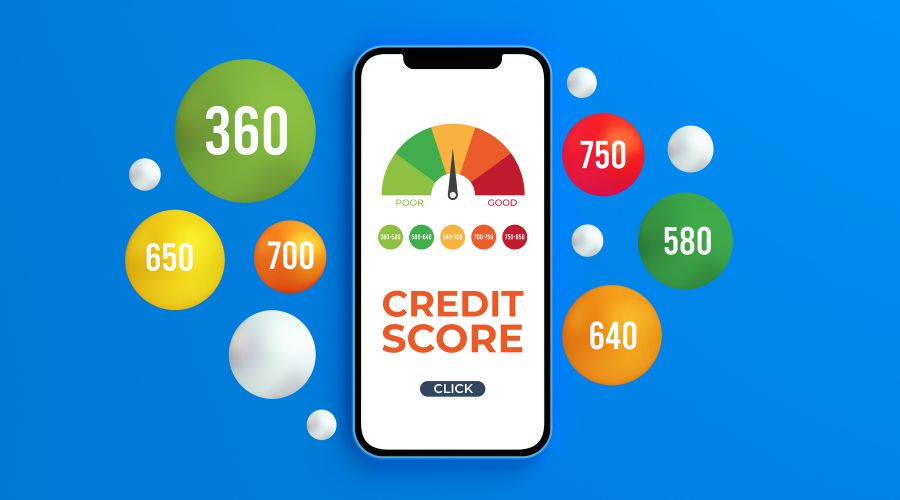A high credit score not only helps you secure loans and credit cards at lower interest rates, but it also makes it easier to rent an apartment, get a job, and even save on insurance premiums.
In this blog post, I will explain what a credit score is, how it’s calculated, and share 15 ways to improve your credit score.
Understanding Credit Scores
What is a credit score?
A credit score is a three-digit number that represents your creditworthiness.
It’s calculated using the information in your credit report, which includes your payment history, debt levels, and the types of credit you have.
Lenders use credit scores to evaluate the risk of lending you money.
How credit scores are calculated
The most commonly used credit score is the FICO score, which ranges from 300 to 850.
It’s calculated based on five factors: payment history (35%), amounts owed (30%), length of credit history (15%), types of credit (10%), and new credit inquiries (10%).
The impact of credit scores on financial life
A higher credit score means you’re more likely to be approved for loans and credit cards with lower interest rates, saving you money over time.
Furthermore, a good credit score can help you secure better terms for a mortgage, qualify for lower insurance premiums, and even improve your chances of getting a job or renting an apartment.
15 Ways to Improve Your Credit Score
1. Regularly check your credit report
Checking your credit report regularly helps you catch any errors that could hurt your credit score, like incorrect account balances or unauthorized inquiries.
If you find errors in your report, you can dispute them with the credit bureaus. Make sure to provide supporting documentation to strengthen your case.
2. Make timely payments
Late payments can significantly hurt your credit score. Payment history accounts for 35% of your FICO score.
Use calendar reminders, apps, or enable notifications from your financial institutions to help you remember due dates.
3. Pay off high-interest debt first
Targeting high-interest debts first saves you money in interest charges and can improve your credit utilization ratio.
The snowball method involves paying off the smallest debts first, while the avalanche method targets the highest interest rates first. Choose the strategy that works best for you.
4. Maintain low credit utilization
This is the percentage of your available credit that you’re using. A lower ratio is better for your credit score.
Pay down balances, avoid maxing out credit cards, and consider requesting a credit limit increase to help lower your credit utilization.
5. Diversify your credit mix
Having a mix of credit types, such as installment loans (e.g., auto loans, mortgages) and revolving credit (e.g., credit cards), shows lenders you can handle different types of debt responsibly.
A diverse credit mix accounts for 10% of your FICO score and can help improve your creditworthiness.
6. Keep old credit accounts open
The age of your credit accounts affects your credit score, accounting for 15% of your FICO score.
Only close old accounts if they have annual fees or other costs that outweigh the benefits of keeping them open. Otherwise, consider keeping your oldest accounts open to maintain a longer credit history.
7. Limit hard inquiries
Hard inquiries occur when you apply for new credit and can temporarily lower your credit score. Soft inquiries, such as checking your own credit score or pre-approvals, don’t impact your score.
When applying for credit, try to limit hard inquiries by doing your research and only applying for credit you’re likely to be approved for.
8. Consider a secured credit card
Secured credit cards require a deposit, which serves as your credit limit. These cards can help you build credit if you have limited or poor credit history.
By making timely payments and managing your secured credit card responsibly, you can improve your credit score and eventually qualify for unsecured credit products.
9. Become an authorized user
Becoming an authorized user on someone else’s credit card can help you build credit, especially if the primary cardholder has a strong credit history.
Choose someone with a good credit score, low credit utilization, and a history of timely payments to maximize the benefits.
10. Set up automatic payments
Automatic payments help ensure your bills are paid on time, reducing the risk of late payments.
Late payments can severely hurt your credit score, so setting up autopay can help protect your credit.
11. Monitor your credit with free tools
Many financial institutions and websites offer free credit monitoring services that can alert you to changes in your credit score or potential fraud.
Regular monitoring can help you identify areas for improvement and track your progress toward a better credit score.
12. Negotiate with creditors
If you have a history of timely payments but made a recent late payment, you can ask your creditor for a goodwill adjustment to remove the late payment from your credit report.
13. Settling delinquent accounts
If you have delinquent accounts, consider negotiating with your creditors to settle the debt for a lower amount. While it won’t remove the negative information from your report, it can still improve your credit score over time.
14. Seek professional help
Nonprofit credit counseling agencies can provide personalized advice and help you create a debt management plan.
A debt management plan consolidates your debts into a single monthly payment, potentially lowering your interest rates and making it easier to pay off debt.
15. Practice financial discipline
A well-structured budget can help you manage your finances, ensuring you have enough money to cover your bills and save for the future.
Having an emergency fund can prevent you from relying on credit when unexpected expenses arise, reducing the risk of increasing your debt levels.
Be patient as improving your credit score takes time, as you need to demonstrate consistent, responsible financial behavior.
You need to recognize the long-term benefits of good credit and it will pay off in the form of better credit opportunities and financial freedom.
Conclusion
I hope these 15 ways will help you to improve your credit score.








